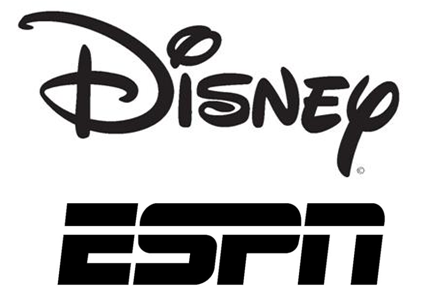ESPN Still Causing Trouble For Disney

Disney (DIS) is in trouble. At least that’s what you’d think listening to the analysts. The company, which has been on a tear over the last few years, has shown solid growth in both revenue and earnings across all its segments.
But when asked about its ESPN situation last August, CEO Bob Iger replied that the popular sports network had suffered “some subscriber loss.” It was a few months later that we found out exactly what “some” meant to Disney — 7 million subscribers, roughly 7% of the total subscriber base, ditched live sports through ESPN as part of the cord-cutting trend that has been troubling cable networks considerably.
The bear case
Since then analysts have suddenly gotten bearish on the company, with the latest downgrade coming from Barclays. The bank’s analyst Kannan Venkateshwar downgraded Disney shares from “Equal weight” to “Underweight.” Here’s his logic:
In a secularly fragmenting media environment, ESPN is the most exposed. This is because ESPN's business model depends on the cross subsidy of the pay TV bundle. Consequently, given ESPN's fixed cost structure and variable revenue model, subscriber losses are likely to have a disproportionate impact on the business model. In our opinion, ESPN accounts for a disproportionate share of Disney's cash flow and the gap between OCF (7%) and EBIT growth (17%) over the last 2 years likely already points to this pressure from subscriber losses. This issue could be compounded by potential step ups in cost recognition.
There are a lot of fair points that Venkateshwar makes. However, it’s when he broadens his bearish case beyond is ESPN that he misses the mark. His argument as to why Disney continues to outperform its industry peers is because of its successes in its studio segment. Venkateshwar specifically points out “Star Wars” and “Frozen.” He says that if those didn’t exist, studio and merchandising revenue would have been flat.
Let’s stick to ESPN, please
Using Venkateshwar’s logic, if we take out the mind-blowing success of the iPhone 6, Apple’s revenue last year was negative. The point is, “Frozen” and “Star Wars” did exist. And with more to come from both franchises and Disney’s record of being able to turn out blockbuster after blockbuster in all of its studios, there’s no reason to believe that any part of Disney is in trouble besides ESPN.
That said, ESPN’s troubles likely won’t plague Disney over the long term. True, the network has taken longer to respond to the cord-cutting movement than it should have. All of us thought that live sports would be somehow protected because popular streaming services like Netflix, Amazon Prime and Hulu don’t offer them.
Alas, we were all wrong, and ESPN must make up for it. But it’s unlikely that Disney will sit back and watch one of its most profitable segments demise with indifference. This company has reinvented itself over and over again over the years. It went from an animation studio to a happy factory — complete with merchandise and theme parks — to a cable network giant to a studio conglomerate. Disney will find a way to make this right.
Disclosure: None.




ESPN may be in trouble, but not Disney overall. As mentioned in the author, blockbusters like Star Wars (and the 5 more Star Wars films yet to be made) are making and will continue to make them a bundle. And Frozen dolls outsold Barbie dolls for goodness sakes. Disney is flourishing.
Disney has been touted as a safe investment for so long, many of us have come to believe that the stock cannot fall. A downgrade isn't the end of the world but Disney can't afford to rest on its laurels. Its success with the latest Star Wars movie is not enough to maintain the momentum in the long run. Losing 7% of its ESPN subscribers is a considerable blow and means that Disney needs to reorganize itself to remain competitive in this viewing sector. In terms of analyst opinions this month, 5 are a strong buy, 13 are a buy, 15 a hold, 0 are a underperform, and a 1 sell. Disney is down 21% in the past 6 months. Are layoffs in the cards for Disney?